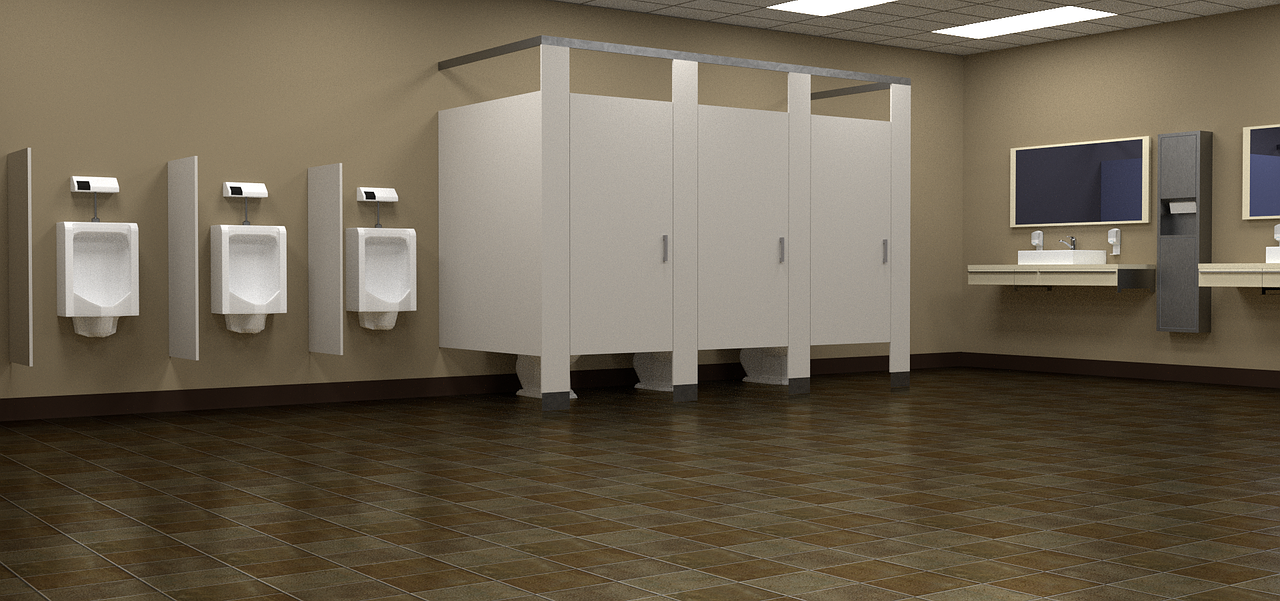You excuse yourself and scout out the nearest loo. Only to find, there’s no room at the inn. Every seat occupied.
Except, that is, for the handicap stall.
What to do?
Do you waltz right in and take care of business? Or do you “put a cork in it,” as my father used to say on car trips, and try to hold out until someone else finishes up?
If you decide to “just do it,” must your decision be justified by biological urgency? Or is it ethically OK to use the handicap stall simply for convenience, even if nature is content to wait? After all, the tuba solo is mere minutes away.
The great philosophers are silent
I’ve scoured the works of Socrates, Plato, and Aristotle, of Lao Tzu and Confucius, Kierkegaard and Kant, Hobbes and Hume, Aquinas and Anagonye — nary a word on this most urgent of issues. Some dilemmas, it seems, are too thorny even for the masters to embroil themselves in.
Now you might say, well, it’s just like the handicap parking space, isn’t it? You wouldn’t park there just because it was empty. So, problem solved.
But hold on a sec. Surely there’s a reason why the handicap stall doesn’t require a permit. You can’t reasonably expect someone to wait around until one particular parking space becomes vacant. Hell, anytime near Christmas you could well die of thirst during that vigil, and meanwhile you’re obstructing traffic. But a bathroom stall? That’s another matter entirely.
That may be, says the Devil’s advocate, but the need for a toilet is more urgent than the need for a parking space. What if the disabled person can’t wait?
Oho!, I say, but doesn’t urgency level the playing field? Are we not all equally prone to that same urgency? Is this not an argument in favor of using the handicap stall regardless of one’s physical abilities? What’s the difference, after all, between asking a person in a wheelchair to wait and asking another person to wait who is not in a wheelchair? What about diabetics? They are vulnerable to sudden and extreme urgencies. Should they be denied access simply because they don’t need the wall-bar?
A matter of degrees
Perhaps we should begin with common ground. I think we all can agree that it’s a dick move to take the handicap stall when another is available if you’re not disabled. I mean yeah, it’s roomier, you got a little personal space between you and the next person, but if a disabled person enters behind you, they don’t have a choice. So ethically, that’s off the table.
On the other end of the spectrum, if you are literally — and I mean literally literally, not figuratively literally — going to soil yourself if you don’t straddle some porcelain within the next minute, and the handicap stall is your only option, then clearly there’s an ethical justification for taking that option. I find it difficult to believe that even the most ardent of anti-opportunists would find fault in this scenario.
But what if it’s simply a matter of convenience? What if it’s the only option at the moment, there’s no one in line, and you just want to take care of business and be on your way. Who knows how long these other people are going to take? Maybe your spouse is waiting for you outside — shouldn’t you consider their inconvenience in the equation? There’s probably another facility elsewhere in the building, but why go to all the trouble of looking for it? If someone comes in who’s restricted to that stall, they can hold their horses just as they would have to do if a disabled person had come in before them. What’s wrong with that?
Well, consider this — it often takes a disabled person longer to reach the facilities compared to folks without physical disabilities. Which means that a person who requires that stall, and only that stall, stands a greater chance of needing to use it quickly. Not to mention that it takes them longer to position themselves once inside. And if you’re in there without absolutely having to be in there, you could well be the cause of physical distress or profound embarrassment on the part of another person.
Where I stand
This last point resolves the dilemma for me. It is inherently unfair for me to use the handicap stall merely for convenience, because in doing so I am ignoring the unfair advantage I have when it comes to convenience in the first place. Statistically, it is more likely that someone who is restricted to that stall will be experiencing urgency compared to someone whose options are not limited in that way. So I cool my jets and I wait, if I can.
This does not mean I will judge you if you choose otherwise. Because it is also statistically true that you are probably not such a huge nerd that you spend half a day of your precious time weighing the ethical ramifications of copping a squat in the big stall.
As for missing that tuba solo…. Well, let’s be honest — you weren’t really all that psyched for it anyway.
